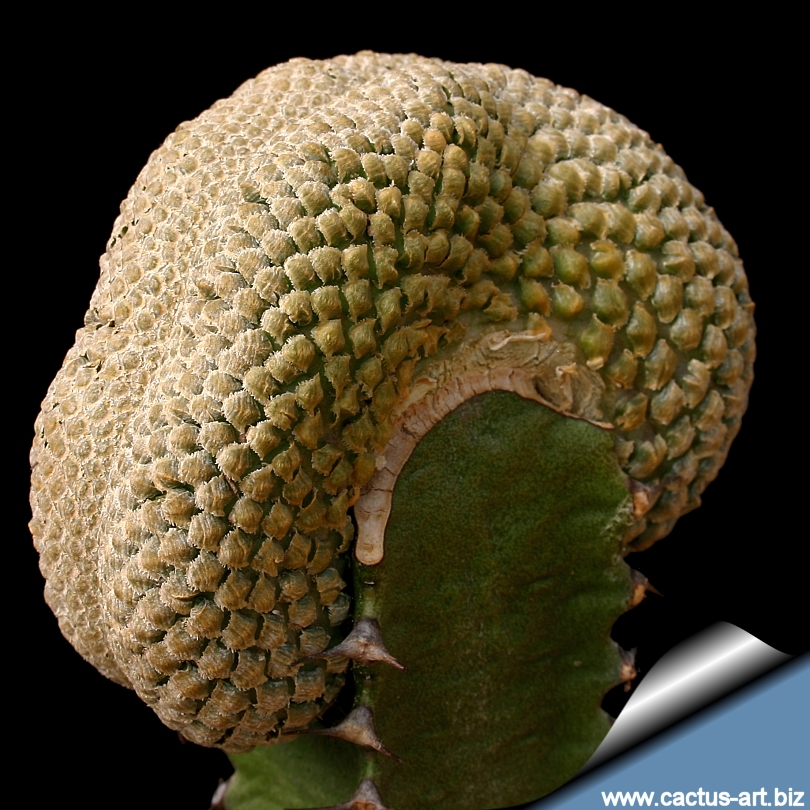|
|
|

Euphorbia piscidermis is a very unusual collectors plant and one of the
most remarkable of succulents. |
|
 |
Description: This is a small succulent
euphorbia covered with characteristic “fish-scales” that looks something
like a small golf ball, It can branch slowly. When it is not in flower,
no one would suspect it of being a euphorbia.
Stems: Up to 12 cm tall, 7 cm in diameter covered with
paste-white fish-scale like
imbricate appendages.
Cultivation: The crested form of the Fish Skin
Euphorb is difficult to grow on its own roots, and is generally grafted
for convenience on
E.
canariensis or
E. resinifera.
Frost Tolerance: Need frost protection. Sun
Exposure: Light shade.
Photo of conspecific taxa, varieties, forms and
cultivars of Euphorbia piscidermis.
|
|


Advertising
|
|
|
|
|
Family:
Euphorbiaceae
Scientific name:
Euphorbia piscidermis
M.G.Gilbert 1974 (s)
Origin:
Garden origin (Nursery
produced cultivar)
Common Name: Fish Skin Euphorb
|
|

The stem is closely shingled with scale-like appendages. (The name 'piscidermis'
comes from the Latin for 'fish-skin', refering to the scale-covered
skin) such scales being otherwise unknown in the genus Euphorbia.
|
|
|
|
Grafting: The plants
that are grafted on a more vigorous and easier stocks are easier to
keep, grow faster and produce more flowers and seeds. The method of
grafting euphorbias differs little from that of other succulents, except
in one important aspect. The latex must be washed or sprayed off until
hardly anything remains. After the latex flow has stopped, a further 1-2
mm slice can be taken from both surfaces without a new latex flow
starting. Both
scion and
stock need to be at the start of the growing season. The stock
should be cut as near as possible to the growing tip, as here the
vascular bundles are dense and not yet woody and will feed the scion in
the best possible way. Where possible stock and scion should be of
similar diameter. The cut surfaces are held together with elastic bands
in cross style, over the plant top and under the pot. The plants should
be left in an airy and shady place for 7-10 days before the bands are
removed.
Warning: As with all other Euphorbias when a plant get damaged it
exudes a thick white milky sap known as latex. This latex is
poisonous and particularly dangerous for the eyes, skin and
mucous membranes. So pay extreme attention not to get
any in your eyes or mouth. Cultivated plants must be handled
carefully.
|
|